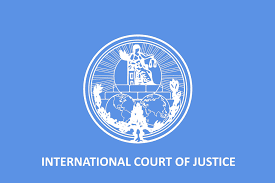The highest court of the United Nations will on Friday deliver their opinion on the legality of the Israeli occupation of Palestinian territories.
The opinion is not legally binding, but if the 15 highest UN judges in The Hague find that Israel is violating international law, it will add to the international political pressure on Israel.
Interest in the issue is immense: a record 52 states have submitted arguments to the court in The Hague.
In 2022, the UN General Assembly asked the International Court of Justice to determine the legal consequences of Israel’s occupation of the territories long before the start of the Israel-Hamas war that erupted last October.
Israel seized control of the West Bank, the Gaza Strip and East Jerusalem during the Six-Day War in 1967.
Israel left Gaza in 2005 but continues to control coastal territory’s land and sea borders, as well as its airspace.
The number of Israeli settlers in the West Bank, which lies between the Israeli heartland and Jordan, has meanwhile risen to around half a million. Including East Jerusalem, the figure is as high as 700,000.
This will be the court’s second non-binding legal opinion on Israel’s occupation policy.
Twenty years ago, in July 2004, the judges declared that the barrier built by Israel along the West Bank violated international law and should be torn down, Israel has not complied.
In 2016, the UN Security Council described West Bank settlements as a violation of international law and called on Israel to stop all settlement activities.
Israel has nevertheless pressed ahead with the expansion of settlements.
Friday’s legal opinion is independent of the proceedings that South Africa brought against Israel before the court in 2023.
In that case, South Africa accuses Israel of genocide for its attacks on the Gaza Strip, Israel rejects the accusation.

